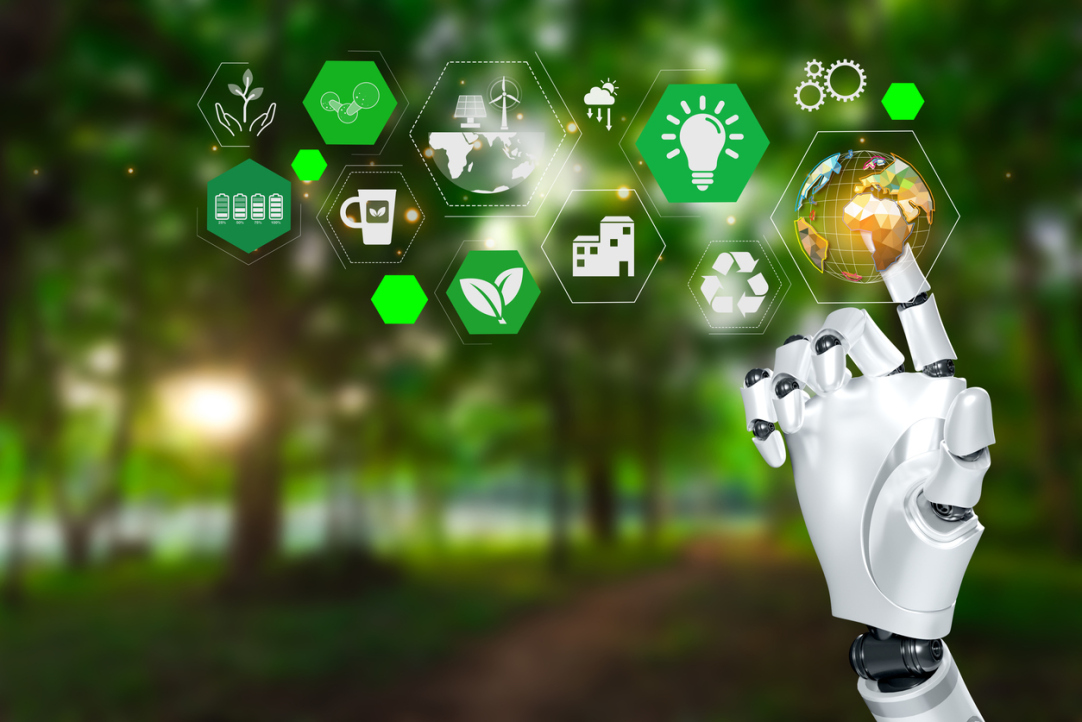Artificial Intelligence as a Catalyst for Sustainable Development

Artificial intelligence is transforming every aspect of life, expanding both our capabilities and our boundaries. At the same time, it presents new challenges for humanity, including concerns about safety, ethics, and environmental sustainability. Today, each neural network leaves a significant carbon footprint. However, with responsible management, AI has the potential to benefit the planet and become a cornerstone of a sustainable future economy. Panos Pardalos, Academic Supervisor of the Laboratory of Algorithms and Technologies for Network Analysis at the HSE Campus in Nizhny Novgorod, emphasised this point as he addressed the XXV Yasin (April) International Academic Conference on Economic and Social Development.
Today, the world is undergoing the Fourth Industrial Revolution, with artificial intelligence playing a central role. Much like electricity during the previous revolution, AI has emerged as the dominant force among all technologies. Many countries—including the USA, China, France, and Canada—have made the development of machine learning technologies a national priority, underscoring the importance and potential of this field.

Panos Pardalos
'We've spoken a lot about artificial intelligence today. It's remarkable how technology has extended our biological abilities—enhancing our vision, hearing, and cognitive capacity. I believe it's more accurate to call this technology "augmented" rather than "artificial" intelligence,’ says Panos Pardalos. ‘Telescopes, sensors, brain–computer interfaces, the metaverse, ChatGPT—these remarkable advancements all stem from complex mathematics and optimisation algorithms.'
According to Prof. Pardalos, the widespread adoption of technology and automation can, on one hand, bring significant benefits to the global economy and human well-being, but on the other hand, it may also pose new challenges in terms of resource usage. Thus, machine learning technologies involve enormous energy consumption.
'We often overlook the cost of technology. While machine learning algorithms possess immense computing power, they also demand equally immense amounts of electricity. The carbon footprint of training a single model is comparable to the emissions produced by several cars over their entire lifespan,' the researcher emphasised.
Other issues highlighted by the scientist include electronic waste recycling and the extraction of rare earth metals. While these metals are essential for the production of green technologies—such as electric car motors, wind turbines, and energy-efficient lighting—their extraction is environmentally harmful and unsustainable.
A 2023 study indicates that we have surpassed seven of the eight global safe Earth system boundaries, including hazardous emissions, biodiversity loss, climate change, and other critical issues. At the same time, Panos Pardalos believes that AI has the potential to be the key to a sustainable future economy.
'We already possess all the necessary technologies to build a sustainable economy, and with the right policies in place, AI could play a crucial role in facilitating this transition. The use of nuclear and renewable energy, waste recycling, digital twins for enterprises, the development of energy storage systems, and the creation of new materials—these are all achievable today. Of course, the cost of implementing new solutions is quite high. To fully leverage the opportunities AI offers, we need political will, along with educational and awareness-raising measures,' Prof. Pardalos concludes.
See also:
HSE Researchers Assess Creative Industry Losses from Use of GenAI
Speaking at the IPQuorum.Music forum on October 15, Leonid Gokhberg, HSE First Vice Rector, and Daniil Kudrin, an expert at the Centre for Industry and Corporate Projects of HSE ISSEK, presented the findings of the first study in Russia on the economic impact of GenAI on creative professions. The analysis shows that creators’ potential losses could reach one trillion roubles by 2030.
‘Fall into ML Has Firmly Established Itself as a Landmark Event in Russia’s AI Scene’
On October 24–25, 2025, the AI and Digital Science Institute of the HSE Faculty of Computer Science will host the fourth annual Fall into ML 2025 conference at the HSE Cultural Centre. The event is once again supported by its general partner, Sber. The focus this year is on breakthrough research and the future of fundamental AI.
Critique of Obscure Reason: Artificial Intelligence in the Perception of Mathematicians
Mathematicians at HSE University believe that there is no need to fear losing jobs because of the widespread use of AI, while at the same time they warn against uncritical acceptance of works and projects prepared with its help. AI, however, can be a useful tool in research, creating models and processing large volumes of information.
Registration for Russian Olympiad in Artificial Intelligence 2025 Now Open
Registration for the fifth season of the Russian Olympiad in Artificial Intelligence has opened. This year, the competition has gained international status. The event is open to students in the 8–11 grades both in Russia and abroad. The winners will receive benefits when applying to Russian universities.
Global AI Trends Discussed at International Foresight Workshop at HSE University
At an international foresight workshop on artificial intelligence held at HSE University, Russian and foreign scholars discussed the trends and challenges arising from the rapid development of AI.
HSE Students Win International Olympiad in Artificial Intelligence
In the finals of the olympiad, the Russian team competed with 300 talented schoolchildren from 61 countries, including Australia, Brazil, Hungary, China, Mexico, the United Arab Emirates, Poland, Serbia, Singapore, the USA, Sweden, and Japan. The finals included team and individual rounds. In the team round, the Russian team made it into the top 10, winning a silver medal. In the individual competition, Russian schoolchildren won six gold medals, one silver, and one bronze.
‘Neural Networks Can Provide Assessments As Accurate As Humans’
Voice assistants have become part of everyday life. They can plan routes, play music and films, and answer questions. But the quality of their speech requires assessment. To address this, students of the Applied Artificial Intelligence Workshop at the HSE University and VK Engineering and Mathematics Schoolhave developed neural networks capable of evaluating speech synthesis.
HSE to Entrust Routine CPD Programme Development to AI
HSE University, together with the EdTech company CDO Global, is launching AI-based constructors to streamline the design of continuing professional development (CPD) courses. The new service will automate the preparation of teaching materials and assessment tools, significantly reducing the time and resources required of lecturers and instructional designers.
HSE University Becomes Absolute Leader in AI Alliance Ranking of Universities
TheAI Alliance Russia has announced a new ranking of Russian universities based on the quality of education in the field of AI. A total of 203 universities from 68 Russian regions participated in the ranking. HSE University was the first to join the highest A++ group.
HSE University and MTS Join Forces to Combat Deepfakes and Train AI to Create Bespoke Video Content
HSE University and MTS Web Services (MWS) have announced the launch of a series of joint research initiatives in the field of artificial intelligence technologies. These efforts aim to develop innovative solutions in cybersecurity, multimodal content generation, and big data analysis. The project’s leading institution is the HSE Tikhonov Moscow Institute of Electronics and Mathematics (HSE MIEM), under the overall coordination of the HSE AI Research Centre.


